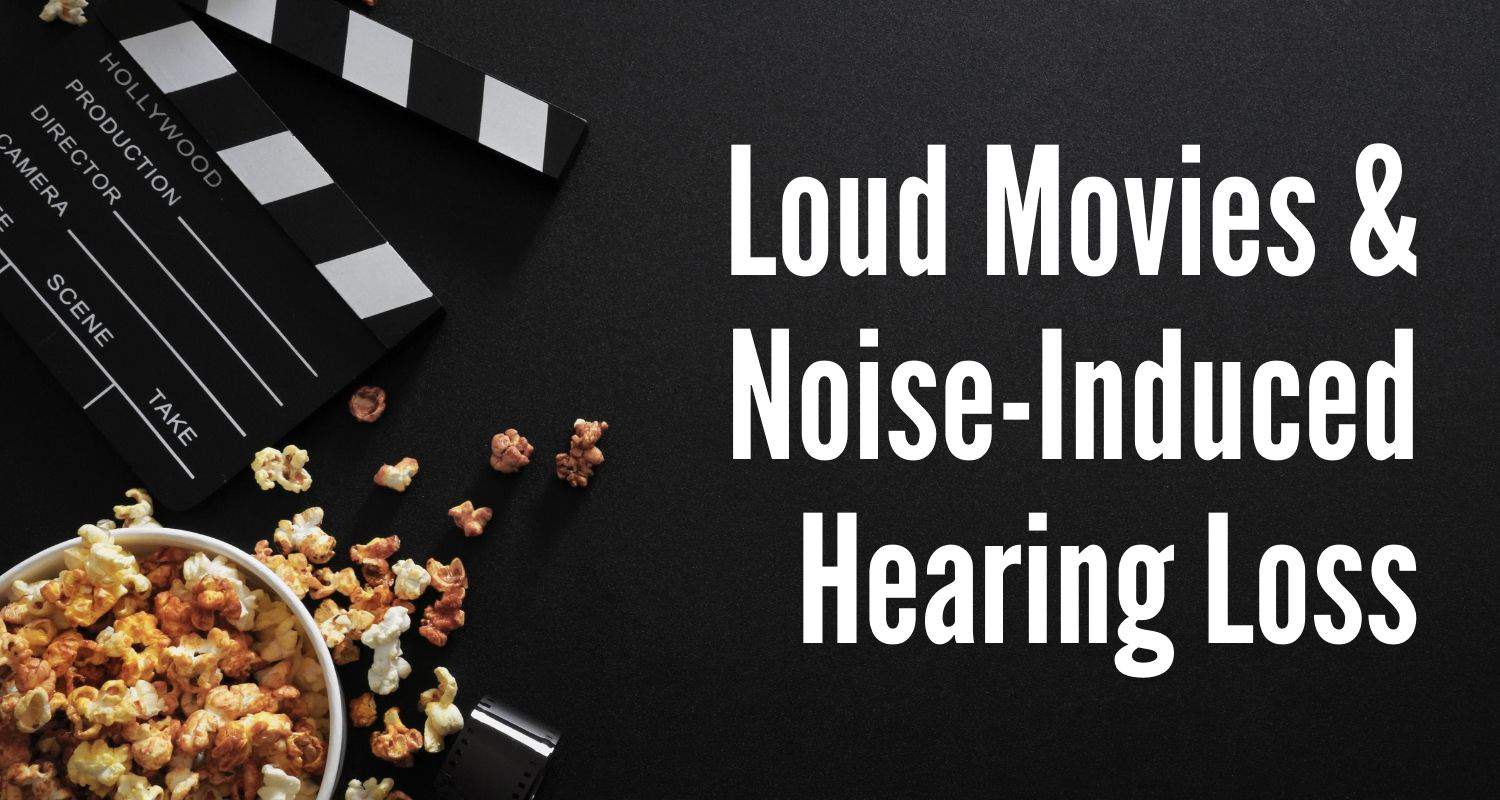
Have you ever left a movie theater on a quiet night and noticed your ears ringing? That sound usually goes away by the morning for most people, but that doesn’t mean that hearing damage hasn’t taken place. Despite regulatory efforts, movie theaters have quite a wide range of maximum volume levels, as do the master audio tracks of blockbuster movies. If you love going to the movies, you might be worried about potential damage to your hearing, and with good reason. Let’s take a moment to understand the nature of noise-induced hearing loss, as well as the ways that you can protect yourself from potential damage.
What is Noise-Induced Hearing Loss?
Of the two most common types of hearing loss—noise-induced and age-related—both occur when the tiny hairlike organelles of the inner ear are bent, broken, or otherwise damaged. This damage is irreparable, and the most important step we can take when it comes to noise-induced hearing loss is to protect ourselves. You might be wondering how much noise is enough to cause this type of damage. The widely accepted threshold for noise-induced hearing loss occurs at 85 decibels. Below this level, a person can withstand sound for 8 hours or more. However, every three additional decibels of sound cut that time in half. For instance, a person can only withstand 88 decibels of sound for 4 hours, and so on. With a feature-length film clocking in at around 2 hours, you should keep these noise thresholds of time and volume in mind the next time you go to the theater.
How Loud Can Movie Theaters Be?
Most movies have historically clocked in below the 85-decibel threshold, so hearing damage was not a serious concern. However, this decibel level has crept upward, making a noise-induced hearing loss in movie theaters a real concern. One of the problems with these general guidelines is obtaining a reliable measurement. As you know, the volume dynamics of a blockbuster movie can vary quite a lot within the context of a few moments. Taking an average reading won’t be enough to capture the time of exposure that can cause damage over the course of a feature film. The American Hearing Research Foundation has taken the responsibility for these advanced measurements, determining that ultimately movies are a “source of premature hearing reduction.” Films with gunfire can provide a steady section with 94 decibels of sound, sometimes reaching 97 decibels, according to the Foundation. Even animated children’s movies can reach a peak of as high as 97 decibels. The loudest movies they measured reached peaks of 104 decibels. At that noise level, only a few minutes can be sufficient to cause permanent hearing damage within specific frequency ranges of sound.
What Can I Do to Protect My Hearing?
If you are concerned about the volume levels at your local theater, there are free apps you can download for your smartphone to measure that noise. The next time you go to the movies, particularly for an action film or other movie you suspect will have very loud sound, you can use this decibel meter to track the volume. With this information in hand, you can take hearing protection into your own hands. Moving to a seat further away from the speakers might make a difference, and you might even want to wear earplugs into the theater.
If you are a serious cinephile, you might want to look into custom-fitted ear molds as protection. These devices allow the sounds of speech and music to come through while keeping out the very loud and damaging sounds that are of concern. If these measures are unsavory, you might even want to have a conversation with the cinema manager about volume levels in the film.
Protecting your hearing is of utmost concern to not only maintain communication ability but also to preserve health and wellness, researchers say. If you know that you have already developed hearing loss, it is crucial to seek a professional diagnosis to determine how serious the loss is and in what ranges of sound your hearing has been affected.
Don’t delay getting this detailed diagnosis and following through to get the hearing aids or other assistance you need! Contact us today.
